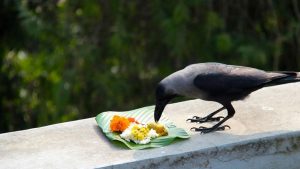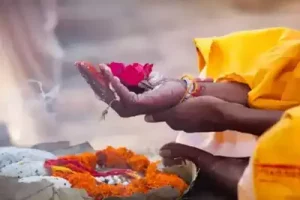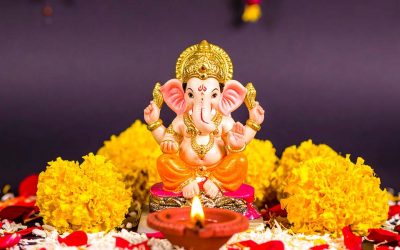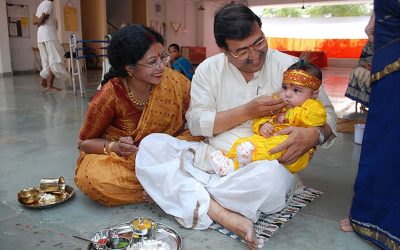Pitru Paksha: Paying Tribute to Ancestors for a Blessed Life
What is Pitru Paksha?
Pitru Paksha is a 16-day period in the Hindu calendar that pays tribute to ancestors. This term is derived from the Sanskrit words “Pitru,” which means ancestors, and “Paksha,” meaning fortnight. At such times, family members perform rituals to show respect to their departed loved ones, seek their blessings, and bring peace to their souls. The belief is that the remembrance and offering to your ancestors at this period help them on their journey towards peace and, in return, bring you blessings for a prosperous life.
When is Pitru Paksha Observed?
Pitru Paksha ordinarily falls on the Hindu month of Bhadrapada, which falls between September and October after the Purnima and ends with Mahalaya Amavasya. It coincides with the waning phase of the moon, symbolizing a time of reflection and connection with the past. This year, 2024, it starts on September 17th and ends on October 2nd. Every day has its own unique ritual. The last day, known as Sarva Pitru Amavasya, is quite significant as it is performed for all the ancestors, regardless of the date of their passing.

Why is Pitru Paksha Important?
In Hindu tradition, your ancestors’ souls are believed to remain connected to you even after death. They are thought to visit the earthly realm at Pitru Paksha and offer you an opportunity to service them through food, prayers, and gratitude.
In return, you assist them in achieving Moksha or being liberated from the cycle of births and deaths. Performing Pitru Paksha is a way to offer respect to your ancestors, acknowledge their roles in shaping your life and seek their blessings for a peaceful and prosperous future.
Pitru Paksha also addresses the concept of distress or obstacles caused by an unsettled spirit of ancestors, known as Pitru Dosh. Performing rituals during this period can eliminate Pitru Dosh and bring balance and harmony to your life.
How is Pitru Paksha Observed?
Pitru Paksha is observed with much respect by a set of traditional rituals called Shradh and Tarpan. These rituals are most commonly performed by the eldest male member of the family, but anybody can perform them to honour their ancestors. The important thing is to give sustenance to the souls of the departed so that they rest in peace.
No marriage ceremonies or festivals are held during Pitru Paksha. It is taken as a period of reflection and remembrance rather than festivity.
What are the Rituals of Pitru Paksha?
Pitru Paksha is a time for ritual that connects us to the spirits of our ancestors. The most important ceremonies for the main practices are Shradh and Tarpan. These rituals are acts of love, gratitude, and respect performed with deep devotion to care.
- Shradh: This is the major Puja of Pitru Paksha. During Shradh, food and prayers are offered to the ancestors. Traditionally, food items like rice, dal, vegetables, and sweets are prepared carefully in a clean environment. These offerings are symbolically given to Brahmins or placed where crows can eat them because crows are said to be the messengers of Yama, the god of death, and through them, feed the souls of the deceased.
- Tarpan: It is the rite for ancestors, which consists of offering water with sesame seeds and barley. It’s done on riverbanks or near sacred water sources. Water is a medium connecting the material world with the spiritual realm. Performing Tarpan is believed to provide sustenance and blessings to the souls of ancestors.
- Pinda Daan: Pinda are rice balls prepared from rice, barley, and sesame seeds. They are meant to be food for the departed souls. In this way, we can satisfy the hunger and thirst of ancestors in the afterlife to attain Moksha or relieve them from the cycle of birth, death, and rebirth.
- Charity and Foods: An integral component of Pitru Paksha is charity. Donating food, clothing, or any other such essential items to the needy is considered to please one’s ancestors; therefore, blessings flow back into the family. This act is a means to show gratitude to our forefathers for their acts of charity.
- Fasting: During Pitru Paksha, there is fasting. This is one of the reasons why most people prefer to go fast or take simple food as a gesture of respect to one’s ancestors. It is believed that by personal sacrifice, one can achieve a much deeper bond with the spiritual world.
- Puja Samagri: Essential items for the Shradh rituals include white cloth, water, rice, barley, sesame seeds, Kusha grass, a diya (lamp), incense sticks, flowers, sweets, and a picture or illustration of the ancestors. Each item holds symbolic significance, and the rituals are performed with spiritual purity and devotion.

Significance of Pitru Paksha
Pitru Paksha is a time to acknowledge all the efforts and contributions made by your ancestors for you. Through these rituals, you are giving peace to the departed souls and inviting their blessings for you. It is believed that if an ancestor is happy, he blesses his descendants with prosperity, good health, and success.
It also reinforces the fact that life is transient. During this period, people are encouraged by their own actions and the legacy that they leave behind. This period is as much about spiritual growth as it is about recognizing your past.
Spiritual Benefits of Pitru Paksha
There are multitudes of spiritual benefits to following Pitru Paksha. You can relieve Pitru Dosh or a barrier in your life by performing Shradh and Tarpan rituals. The blessings you receive from your ancestors during this time can remove negative energies, ensure good health, and bring prosperity.
Besides, Pitru Paksha enables you to strengthen your relationships with family members. These rituals unite the families to pay homage to their ancestors, thus weaving a stronger relationship between the generations. It also presents a chance to develop virtues, including gratitude and compassion and humility, which enhance your spiritual development.
How to Perform Pitru Paksha Puja
Performing the Pitru Paksha Puja involves specific steps. Here’s a simple guide:
- Prepare a Sacred Space: Clean a space in your home or visit a temple or riverbank where you can perform the rituals. On a white cloth, put a photo or representation of your ancestors and arrange your offerings.
- Wear Clean Attire: You must take a bath and wear clean clothes. Pure attire is a must for Pitru Paksha.
- Invoke Your Ancestors: You can light a lamp or an incense at the beginning of the ritual. With prayers, invite your ancestors into the space where you worship and seek their blessings with respect.
- Perform Pind Daan: Offer Pindas, which consist of balls of rice accompanied by water, sesame seeds, and barley, to your ancestors to feed their souls.
- Tarpan: While reciting prayers, pour water in a continuous stream as an offering to your ancestors. This will ensure peace for their souls.
- Offer Food to Crows: Set aside a portion of the food prepared for the ritual for the crows. If a crow eats the food, it is a sign that the ancestors have accepted your offerings.
- Charity: Donate food, clothes, or money to people in need. All charity done in Pitru Paksha are believed to be very auspicious.
- Conclusion of the Ritual: After performing all the rituals, offer the remaining food to the poor or needy. This will ensure that your ancestors are satisfied and bestow their blessings upon you.
Get a Priest from Vedayatra
Properly performing the Pitru Paksha rituals is crucial to honouring your ancestors and receiving their blessings. It is good to have a priest guide you. Vedayatra offers expert priests who can help you with the entire process. With their deep knowledge of ancestral rites and traditions, you can ensure that the rituals are done correctly and with complete devotion. You can easily book a priest from Vedayatra’s website for Pitru Paksha. They can perform the rituals at home or a holy site, bringing peace to your ancestors and blessings to your family.






